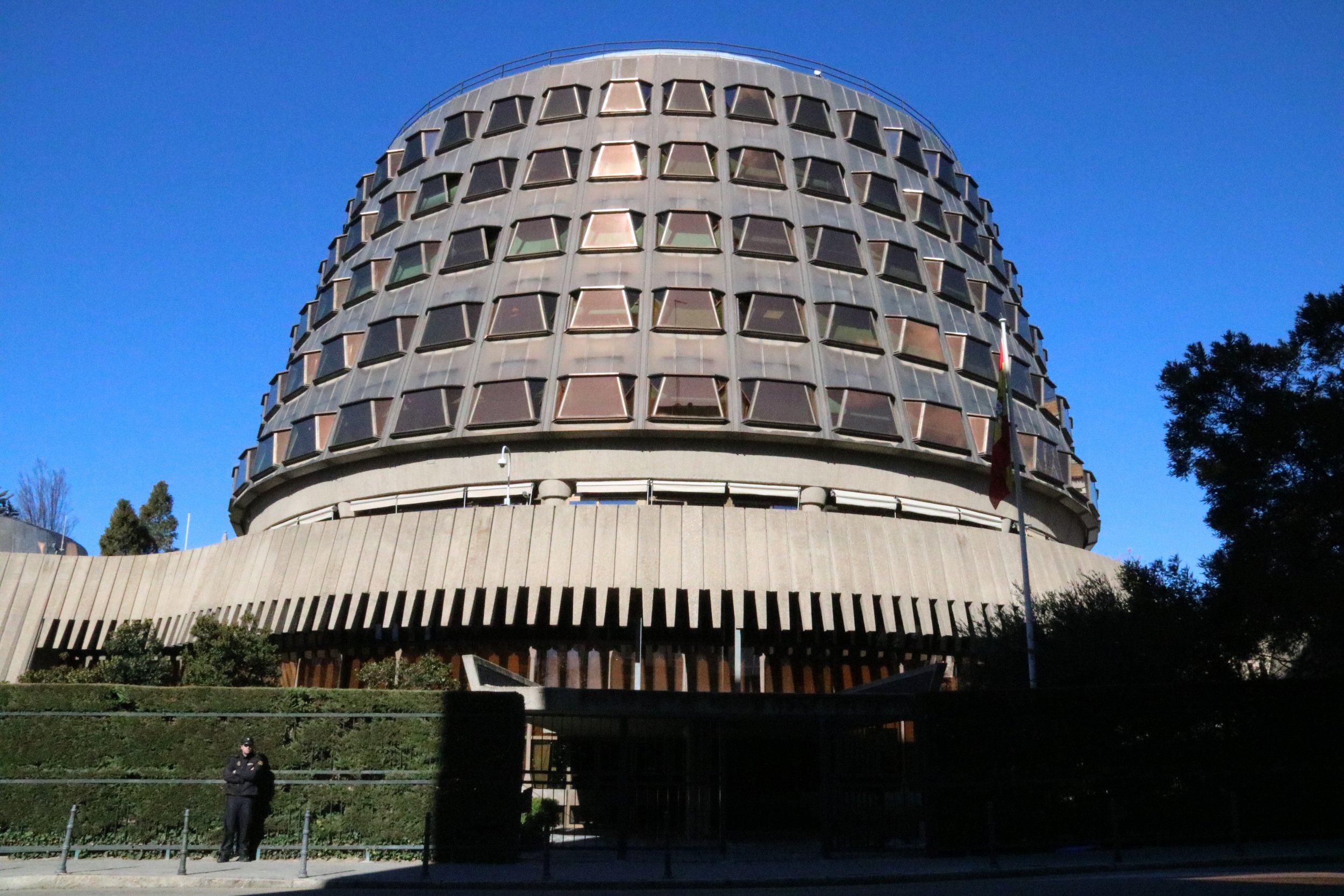His was the fifth dissenting vote against the Spanish Constitutional Court ruling that overturned the legality of the strict lockdown regime of Spain's state of alarm in spring 2020. The publication of the full opinion has been delayed, and its extension justifies it. It is a 36-page document, drafted by judge Juan Antonio Xiol, a Catalan, from the progressive sector of the judiciary, and it goes far beyond a discussion of the measures used to contain the coronavirus. In fact, the author is the same judge who has cast dissenting votes on the sentences of the pro-independence leaders convicted in the Supreme Court. Xiol admits that he wants to "vent his views" and warns, beyond this specific case, of a "drift" in Spain's highest court that will end up exacting a price outside Spanish borders: at the European Court of Human Rights.
In the extensive dissenting view, the judge denounces the "tendency", which has been strong for some time in the court, to "rely on an essentialist conception of the law, through which it attempts to define immovable content delimited a priori from fundamental rights" and which "rejects the constructivist positions that predominate in the contemporary judicial world." These essentialist positions, he warns, "have taken hold in the Constitutional Court to the point of calling into question basic aspects of the rule of law."
Xiol recalls how, even before he entered the Constitutional Court as a judge, "the essentialist prejudice even contaminated - among other matters - the understanding of the right to not suffer torture, inhuman or degrading treatment; the right to intimacy, the presumption of innocence, and the principle of legality in the execution of sentences, in the case of the so-called Parot doctrine". And during his tenure "the same thing happened" in cases related, for example, to freedom of expression (giving the example of the burning of photos of the Spanish king), the right to criticize court decisions or the right not to be tried at a second-level court without being heard.
"In all these cases I gave dissenting votes (sometimes alone) and it has invariably been the European Court of Human Rights which, by correcting the Spanish Constitutional Court, has set the correct doctrine," states the judge. And he adds: "I am referring only to sentences handed down during the first years of my time on the Constitutional Court, given the time it takes for the European Court of Human Rights to rule, as I have subsequently been forced to continue formulating dissenting votes for years on virtually the same matters".
In the face of all this, Juan Antonio Xiol admits that "it is difficult not to feel a certain intellectual fatigue in the face of the court's drift."
State of alarm
After this introduction, the Constitutional Court judge enters into the details of the issue in question. He notes regretfully that the ruling of his colleagues - adopted by six votes to five - gave an "incorrect solution" to the problem, because "they failed to adapt the constitutional text" to the situation. In his view, they issued a ruling "that if taken to its logical conclusions would produce seriously disruptive effects in the application of the measures that will have to be adopted in the future to try to limit the effects of the pandemic".
On July 14th, the Constitutional Court ruled, by six votes to five, that the general lockdown of the Spanish population decreed by prime minister Pedro Sánchez in the first state of alarm against the Covid-19 emergency was unconstitutional. Thus, the court majority partially accepted the appeal filed by the far-right Vox party, and ruled that, by imposing a tough stay-at-home lockdown, the government executive had suspended fundamental rights with a legal instrument that only allowed those rights to be restricted. Instead of declaring a "state of alarm", they said, the government should have declared a stronger "state of emergency".
Below, the full 36-page dissenting opinion (in Spanish) from Constitutional Court judge Juan Antonio Xiol.

